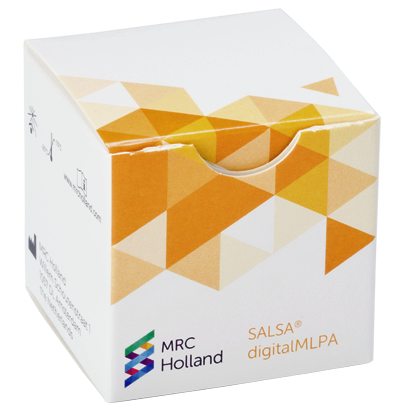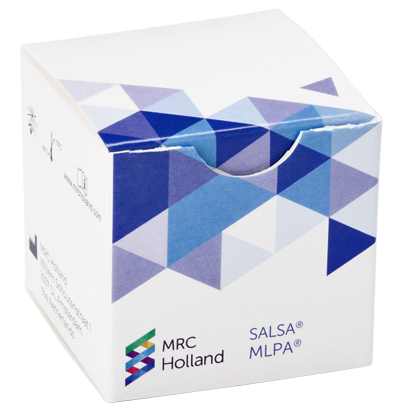P248 MLH1-MSH2 Confirmation

SALSA MLPA probemix P248 MLH1-MSH2 Confirmation detects copy number variations in the MLH1 and MSH2 genes.

Contents: 49 MLPA probes, including 21 probes for MLH1, 17 probes for MSH2 and 1 probe downstream of MSH2.

Tissue: genomic DNA isolated from human peripheral whole blood.

Application: Lynch syndrome (LS).

IVDR certified for in vitro diagnostic (IVD) use.

Intended to confirm copy number variation of MLH1 and MSH2 detected with P003 MLH1/MSH2.


